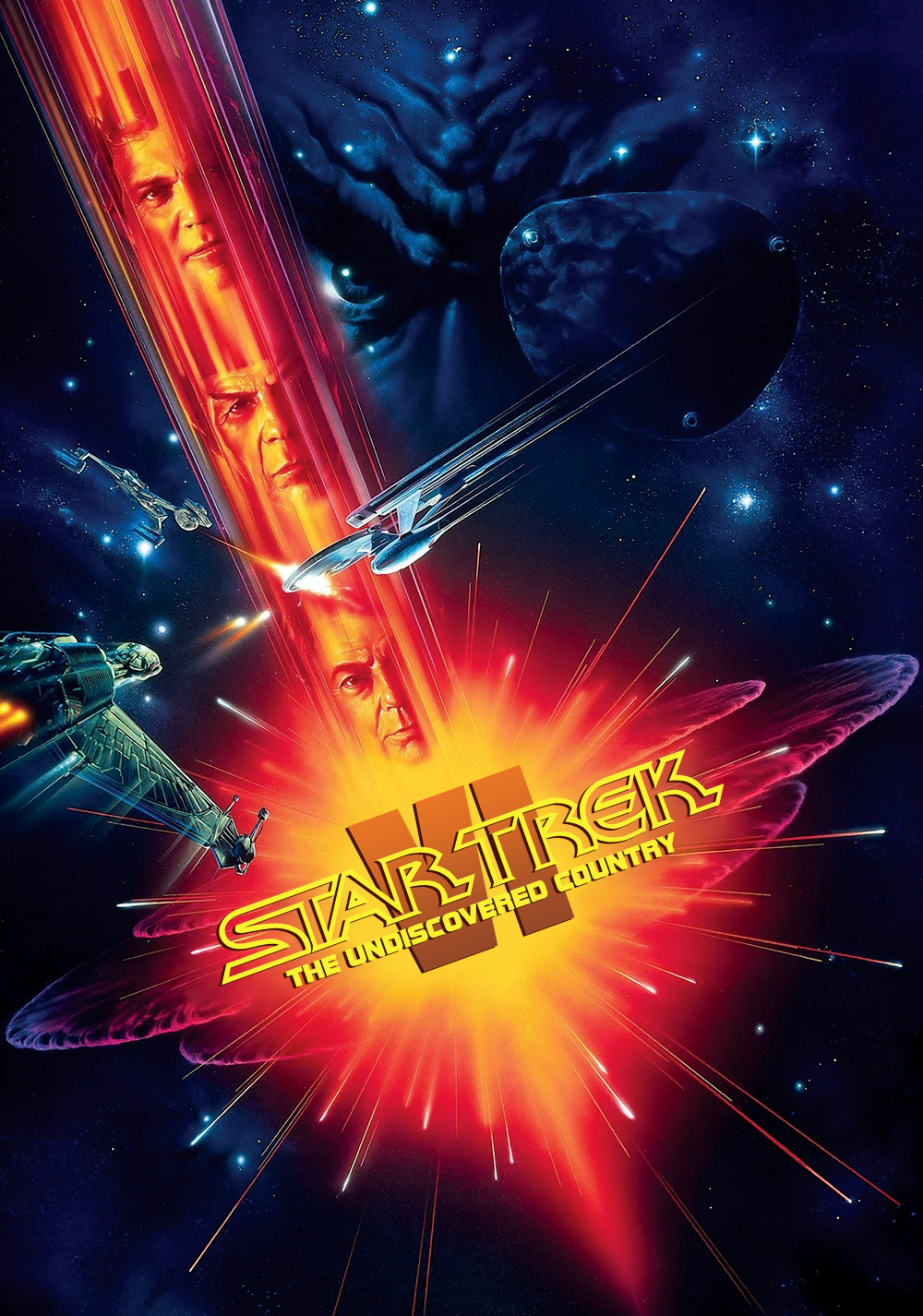 The last of the motion pictures to feature all of the members of the original series, Star Trek VI drew upon parallels to the former Soviet Union engaging in greater diplomacy with the United States, actions that led to the end of the Cold War. But director Nicholas Meyer and the writers did more than touch upon those parallels and looked deeper into what engaging in peaceful negotiations really means.
The last of the motion pictures to feature all of the members of the original series, Star Trek VI drew upon parallels to the former Soviet Union engaging in greater diplomacy with the United States, actions that led to the end of the Cold War. But director Nicholas Meyer and the writers did more than touch upon those parallels and looked deeper into what engaging in peaceful negotiations really means.This is explored through Captain James T. Kirk and his struggles in dealing with the Klingon Empire. On one hand, he makes it clear he doesn't trust Klingons and can never forgive those Klingons who killed his son. On the other hand, he muses about how much of his time with the Federation has been focused on the often tense dealings with the Klingon Empire and what place there is for him in the Federation should diplomatic negotations succeed.
It's the latter perspective that gets explored in more detail as a mystery unfolds aboard the USS Enterprise. Sent to escort a Klingon ship through Federation territory, torpedoes are fired upon the Klingon ship, two individuals beam aboard the ship and kill Klingon Chancellor Gorkon and several members of his crew. After Leonard McCoy fails to save the Chancellor, he and Kirk are arrested for the chancellor's murder.
Meyer, in interviews on the special edition DVD released in 2004, said that Gorkon was designed to resemble Abraham Lincoln because, like Lincoln, Gorkon had new ideas for how people could move forward, ideas that would result in old institutions ending and new ones taking their place. As with Lincoln, Gorkon is met with opposition not only from certain Federation officials, but from within the Klingon Empire. On the DVD, Meyer talked about other notable leaders who sought peaceful relations rather than high tension, ranging from Anwar Sadat to Mahatma Gandhi, and how their ideas were met with resistance both from outside and within.
Indeed, as the plot unfolds and individuals with the Federation, the Klingon Empire and elsewhere are implicated in a conspiracy to assasinate Gorkon and other leaders, the question is raised about those in power who worry what change could bring to our world.
Also addressed is the fact that many aboard the Enterprise are not comfortable with the idea of the Klingons having dinner with them, revealing the bigotry and distrust that often exists between two nations or group who oppose one another. But in the end, the bulk of the crew learns that it's important to move past any differences to move forward. Indeed, when Kirk reveals to all about the plot to disrupt the peace negotiations, both he and Gorkon's daughter, Azetbur, come to realize the importance of moving past the distrust and to find ways to work together.
Though the parallels are more in line with the way the world was changing in the early 1990s, the overarching theme about what change means is still relevant today. Meyer touched upon the military industrial complex that Dwight Eisenhower warned us about and, the truth is, that same complex holds continued sway over the direction of the United States. Even as the Cold War ended, the United States continued down an interventionist path and distrust exists between it and several other nations today.
It begs the question about what we should really ask ourselves about those tensions -- that if they have more to do with our fears of change and what lies ahead for certain individuals in power when change comes along.
No comments:
Post a Comment